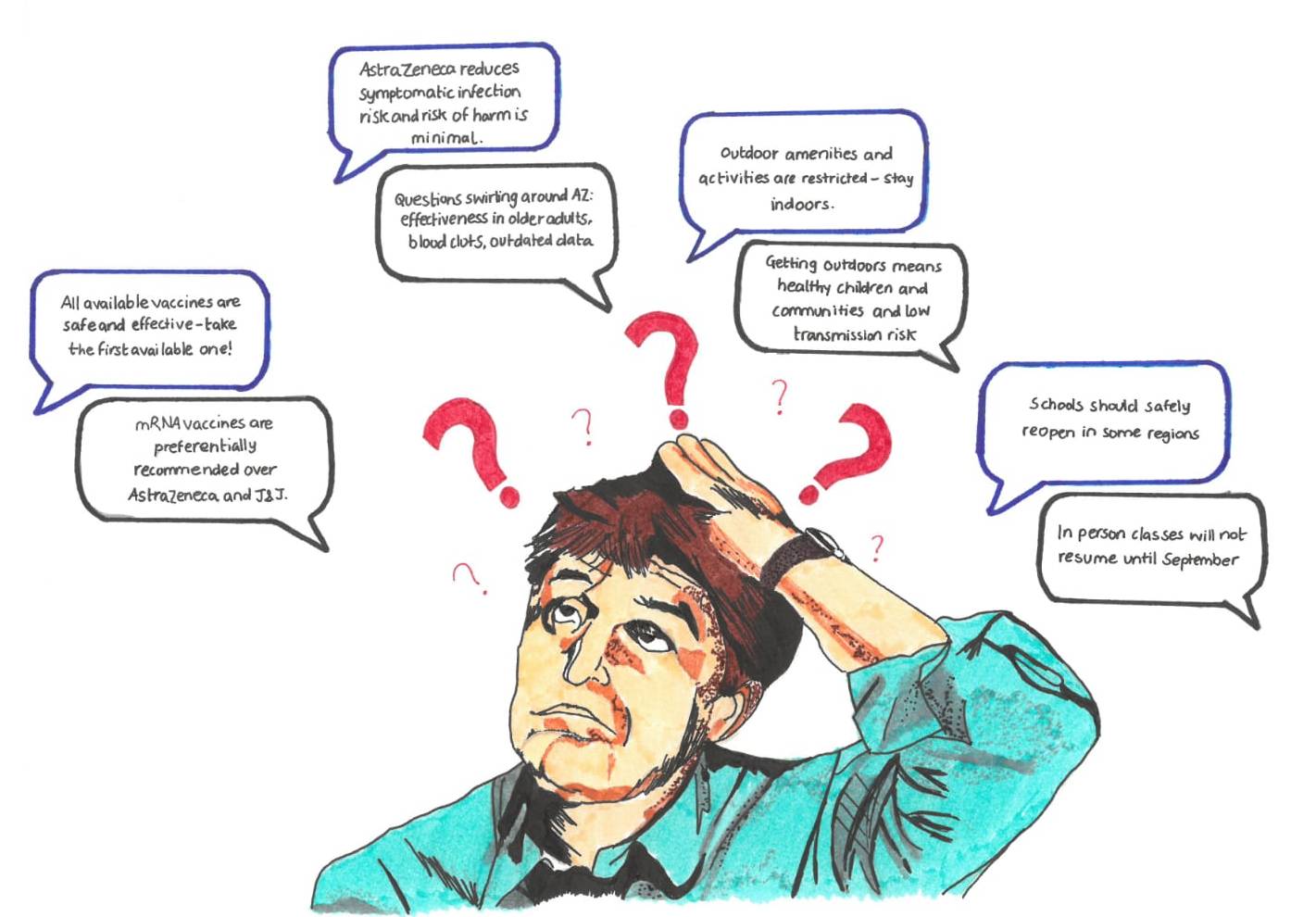The AstraZeneca vaccine is approved.
The AstraZeneca vaccine is safe and effective in protecting older adults from symptomatic infection. Get the first vaccine available.
A national advisory committee recommends against the AstraZeneca vaccine in people aged 65 years or older.
The AstraZeneca vaccine is safe and effective in older adults – but Pfizer-BioNTech and Moderna are still preferred, with less questions around their efficacy and less concern about rare but serious blood clots.
Mixed messaging has been rampant throughout the pandemic and continues today. The vaccine landscape has been speckled with conflicting advice from different scientific bodies (sometimes from the same bodies at different times), and incongruencies in scientific and political stances. The messages above were disseminated in just over a month.
And the phenomenon has not been limited to vaccines.
Are outdoor gatherings and the use of outdoor amenities safe? If so, why stay indoors and threaten the health and well-being of children and communities by banning the outdoors? Should in-person schooling re-open across the board, not at all or in some regions only? Do double-vaccinated individuals need to continue masking and physically distancing, and why do policies differ across the border? Is COVID-19 transmitted by droplets, airborne or both?
Pandemic fatigue is the most prevalent pandemic for many. Toronto restaurants have been closed to indoor dining for just over 360 days. Globally, that outruns Paris (about 260 days), London (259 days) and Hong Kong (two days). Only Toronto, Montreal and Los Angeles cross the 300-day mark.
Conflicting messaging has threatened public confidence in political and scientific leadership. As answers continue to teeter-totter from leading voices, many may be driven to their own interpretations, or perhaps worse, to turn their backs on potentially life-saving interventions and public health measures.
Health-care leaders have had to deal with more challenges than the threat of the virus alone – staying abreast of an “infodemic” and a rapidly evolving evidence base and suppressing misinformation, all while balancing the need for rapid decision-making with the need to preserve public trust and confidence.
That challenge remains today.



The comments section is closed.